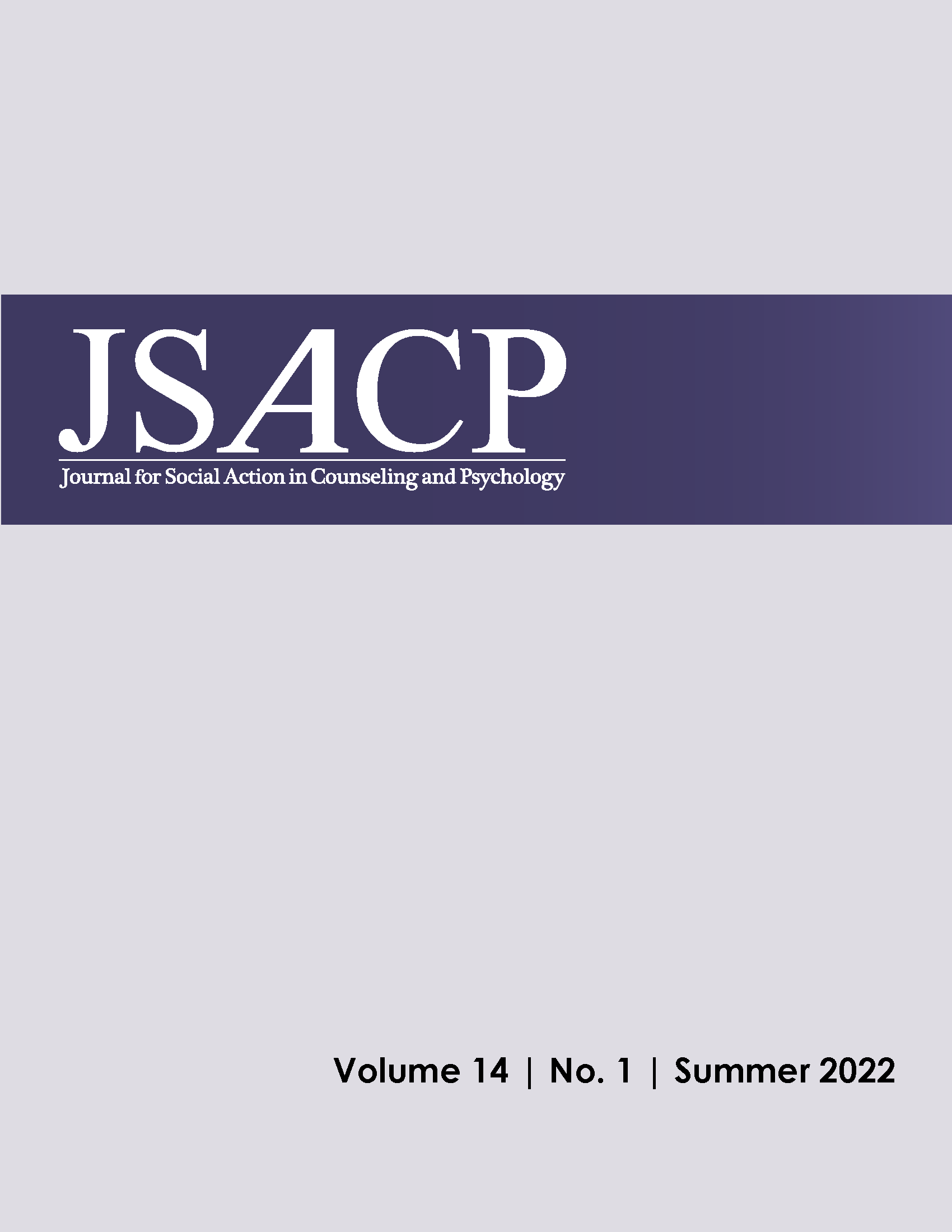Tugging at the root of oppression: Infusing social justice across doctoral level clinical psychology curriculum
DOI:
https://doi.org/10.33043/JSACP.14.1.37-52Keywords:
social justice, decolonization, curriculum, graduate education, pedagogy, social privilegeAbstract
Most professional associations and accrediting bodies in psychology and counseling make the aspirational call to graduate training programs to integrate social justice throughout their curriculum. Although a laudable goal, there appear to be no clear guidelines or best practices for cultivating this aspiration in psychology trainees preparing for entry-level practice. This case study will summarize a comprehensive process of integrating social justice principles into a doctoral program in clinical psychology accredited by the American Psychological Association. This programmatic, descriptive case study will describe specific program revisions to internal curriculum components and reorganization of the program trajectory, which were implemented to assist students in the reconciliation process. Modified curriculum components included lecture topics, readings and empirical research, in-class activities, and assignments in the core classes. The result was a more coherent and sequential program that infuses social justice concepts across all aspects of learning and training. The goal of this investigation was to (1) inspire other programs to engage in the important work of moving the exploration of social justice from one mandatory class to a concept that permeates all training aspects, and (2) cultivate a new generation of psychologists that know not just how to effectively treat people from different cultural perspectives, but to dismantle the oppressive systems that cause psychological suffering.
Downloads
Downloads
Published
How to Cite
Issue
Section
License
Copyright (c) 2022 Jude Bergkamp

This work is licensed under a Creative Commons Attribution-NonCommercial-NoDerivatives 4.0 International License.
By submitting to JSACP, the author(s) agree to the terms of the Author Agreement. Beginning in 2018, all authors retain copyrights associated with their article contributions and agree to make such contributions available under a Creative Commons Attribution-NonCommercial-NoDerivatives 4.0 International license upon publication in JSACP. Copyrights to articles published prior to 2018 have been transferred from the authors to JSACP.









